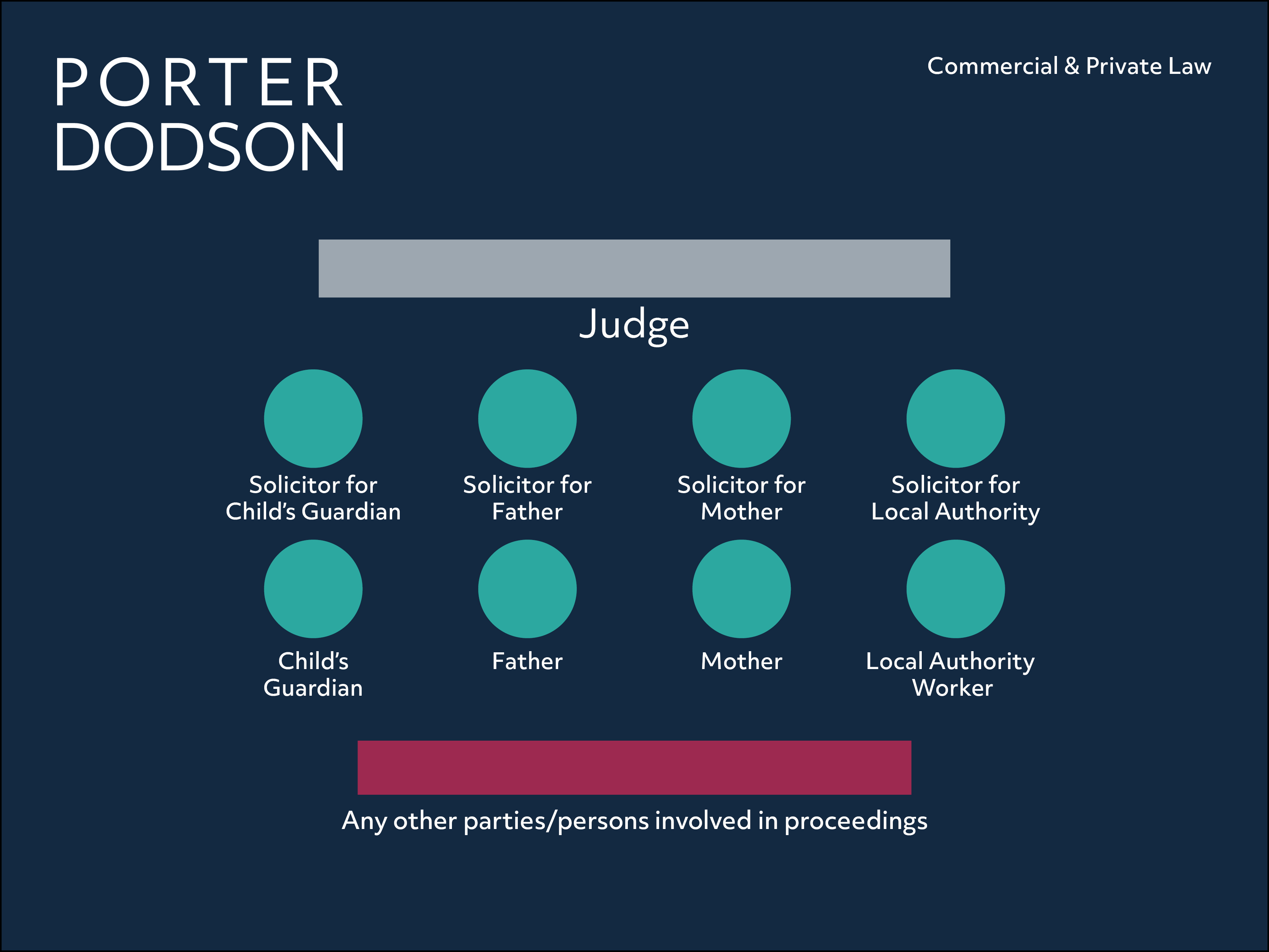May 18, 2023
It can be very daunting attending court for the first time, especially during care proceedings. Care proceedings are a court process started by a Local Authority when they are concerned that a child may be at risk of harm. If care proceedings are issued, several hearings will be listed which you must attend if ordered by the court.
Clients have a number of questions before attending a hearing at a family court. The these can range from:
We will deal with these questions in this blog.
Who will be present at the hearing?
A number of people will be at the hearing:
Other people who may be in attendance:
Family care proceedings are not open to the public. However, if a Judge orders it, a reporter may be present to record the case.
Where do I sit?
A court Usher will confirm where you will be sitting either before or as you enter the room.
The court room will usually be set up in the following way:
Front: Judge will be sat at the front of the court room with all parties facing him.
First row of tables: Solicitors or barristers representing the parties.
Second row of tables: The parties, such as persons with parental responsibility, Child’s Guardian or social worker.

Do I need to speak?
It is very unlikely that you will need to speak before the judge during care proceedings unless the judge requests this particularly at the first hearings. You will be required to speak when the judge asks (or orders) you to give evidence. This will usually happen during a Fact-Finding hearing or at a final hearing. These hearings are not always required. Your solicitor is there to represent you during each hearing. It is therefore important that you and your solicitor have enough time to discuss your position to ensure that they convey this clearly to the judge and other parties.
Will you be wearing a white wig?
The simple answer is no.
Family law solicitors and barristers only wear the white wigs seen on TV and newspapers in special circumstances if the Judge requires it.
More information
If a Local Authority have issued care proceedings and you require assistance, please do not hesitate to contact us. Porter Dodson specialise in this area of law and our designated Child Care Team will be happy to offer advice and represent you at hearings. Please contact us on 01935 424581 and ask for a member of the Child Care Team.
For legal advice on private client matters
Get in touchA clean break order is a financial arrangement approved by the Court that enables spouses to sever the financial ties between them and remove any...
In a nutshell, a co-operative and amicable way to resolve issues arising in respect of a marriage / relationship...




